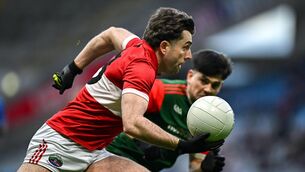Limerick must dictate terms of battle to Tipperary

A raft of subsidiary enquiries flow from this. Will he tell Gavin O’Mahony to lie back as close to Seamus Callanan as possible or is he happy to have young Dan Morrissey go man on man at full-back? Will he ask Seamus Hickey to do the same vis a vis John O’Dwyer or not? How does he propose — and more on this anon — to stop Padraic Maher, the launchpad for so many Tipperary attacks?
And so on and so forth. But the original question is the most important question, the overarching question. What kind of battle do Limerick want to fight and how do they go about ensuring it’s fought on their terms and terrain? Because — and one assumes the inhabitants of Shannonside won’t be slow about acknowledging this if the battle is fought on the terms and terrain of Tipperary’s choosing, then the hosts will win it, and will win it well.














